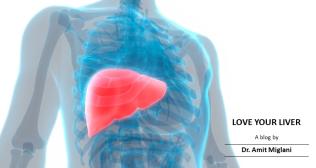
Understanding Liver Function Tests: Purpose, Types & Interpretation
The liver is the powerhouse of the human body, a resilient and complex organ that works silently behind the scenes to perform over 500 vital functions. From filtering toxins out of our blood and aiding digestion to metabolizing nutrients and producing essential proteins, its role in maintaining our overall health is immense. Because the liver is so crucial, monitoring its health is a key part of preventive medicine. One of the most common and effective tools for this is the Liver Function Test (LFT).
You may have seen an LFT test listed as part of a routine health check-up package and wondered about its significance. Understanding this simple blood test can empower you to take a more active role in your health. This guide will explain the purpose of a liver function test, break down the different parameters it measures, and help you understand what the results might reveal.
What Is LFT Test and Why Is It Done?
So, what is LFT test? A Liver Function Test is a panel of blood tests that measures the levels of specific enzymes, proteins, and other substances produced by or processed by the liver. It provides a snapshot of the liver's health and functionality. An abnormal result can be the first indication that the liver is inflamed, injured, or not working as efficiently as it should.
Doctors recommend an LFT for several reasons:
- Routine Health Screening: To check for signs of liver disease, especially in individuals with risk factors like heavy alcohol use or a family history of liver problems.
- To Diagnose Liver Conditions: If a person is showing symptoms of liver disease, such as jaundice (yellowing of the skin and eyes), fatigue, or abdominal pain, an LFT is a primary diagnostic tool.
- To Monitor Disease Progression: For patients with a known liver condition, such as hepatitis or cirrhosis, regular LFTs help track the severity and progression of the disease.
- To Assess Treatment Effectiveness: The test can show how well a treatment for a liver disease is working.
- To Monitor Medication Side Effects: Some medications can affect the liver, so an LFT may be used to monitor for any potential damage.
The Key LFT Parameters Explained
A standard liver function test measures several key substances in the blood. Understanding these individual LFT parameters is key to interpreting the overall result.
1. Liver Enzymes
Enzymes are proteins that act as catalysts for chemical reactions in the body. When liver cells are damaged or inflamed, they leak these enzymes into the bloodstream, causing their levels to rise.
- Alanine Transaminase (ALT or SGPT): ALT is found in high concentrations almost exclusively in the liver. This makes it a very specific marker for liver cell injury. A high ALT level is a strong indicator of conditions like viral hepatitis or damage from toxins.
- Aspartate Transaminase (AST or SGOT): AST is also found in the liver, but it is present in other organs as well, including the heart, muscles, and kidneys. While an elevated AST level can indicate liver damage, it is less specific than ALT. Doctors often look at the ratio of AST to ALT to get more clues about the cause of the damage.
- Alkaline Phosphatase (ALP): This enzyme is concentrated in the liver (specifically the bile ducts) and bone. High levels of ALP can suggest a problem with the bile ducts, such as a blockage from a gallstone, or certain liver diseases.
2. Liver Proteins
The liver is responsible for producing many of the proteins circulating in our blood.
- Albumin: This is the main protein made by the liver. It performs many important functions, including nourishing tissues and preventing fluid from leaking out of blood vessels. Low levels of albumin can indicate that the liver's production capability is compromised, which is often a sign of chronic liver disease like cirrhosis.
- Total Protein: This test measures the total amount of protein in the blood, including albumin and other proteins called globulins.
3. Bilirubin
Bilirubin is a yellowish substance that is formed during the normal breakdown of red blood cells. It is processed by the liver and excreted in bile.
- Total Bilirubin: High levels of bilirubin in the blood cause jaundice. Elevated levels can mean the liver is not processing it correctly, or that there is a blockage in the bile ducts preventing its excretion.
Understanding the LFT Test Normal Range
When you get your LFT test report, you will see your results next to a reference range. It is important to know that the exact LFT test normal range can vary slightly between different laboratories. However, typical ranges are:
- ALT (SGPT): 7 to 56 U/L (units per liter)
- AST (SGOT): 10 to 40 U/L
- ALP: 44 to 147 IU/L (international units per liter)
- Albumin: 3.5 to 5.0 g/dL (grams per deciliter)
- Total Bilirubin: 0.1 to 1.2 mg/dL (milligrams per deciliter)
It's crucial not to panic if one of your results falls slightly outside this range. A doctor will interpret the results based on the complete picture of all the LFT parameters and your overall health.
Interpreting Your Results: What It All Means
An abnormal LFT result is a clue, not a diagnosis. Your doctor is like a detective who uses these clues to figure out what might be happening. For example:
- Mildly elevated ALT and AST might suggest inflammation from fatty liver disease or a mild viral infection.
- Very high ALT and AST levels (in the thousands) often point to acute liver damage, such as from a viral hepatitis infection or a drug overdose.
- An elevated ALP and Bilirubin with relatively normal ALT and AST might suggest a problem with the bile ducts rather than the liver cells themselves.
A Window into Your Health
The liver function test is a simple yet powerful tool that provides a valuable window into the health of one of your body's most essential organs. It is a cornerstone of preventive health and a critical diagnostic aid. Remember, your lab report is a piece of a larger puzzle. Always discuss your results with your healthcare provider, who can put them into context and guide you on the right path to maintaining a healthy liver and a healthy life.
Frequently Asked Questions
1. Do I need to fast before an LFT test?
In most cases, fasting is not required for a standard LFT. However, if it is part of a larger panel of tests (like a lipid profile), your doctor may ask you to fast for a few hours.
2. What can affect the results of my LFT?
Many factors can cause temporary changes in your liver enzyme levels, including certain medications (even over-the-counter ones), strenuous exercise, and alcohol consumption.
3. What is the difference between SGPT and ALT?
They are the same thing. SGPT (Serum Glutamic Pyruvic Transaminase) is the older name for the enzyme. The modern, more widely used name is ALT (Alanine Transaminase).
4. If my LFT results are normal, does that guarantee my liver is healthy?
A normal LFT is a very good sign, but it's not an absolute guarantee. Some people with chronic liver disease, like cirrhosis, can sometimes have normal or only slightly elevated enzyme levels.
5. How can I keep my liver healthy?
You can protect your liver by maintaining a healthy weight, eating a balanced diet, exercising regularly, limiting alcohol intake, and avoiding unnecessary medications.



















